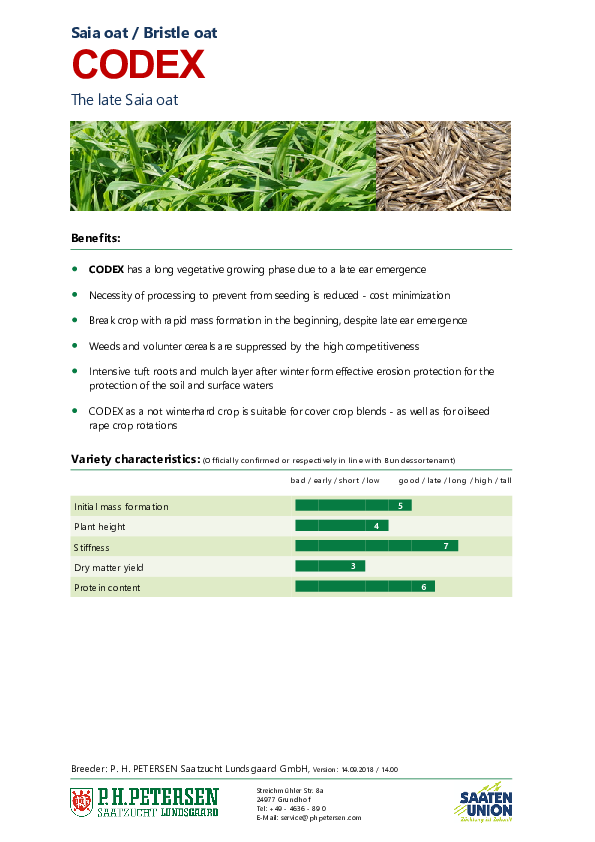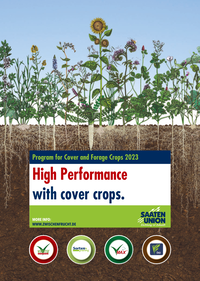bristle oat / saia oat
CODEX
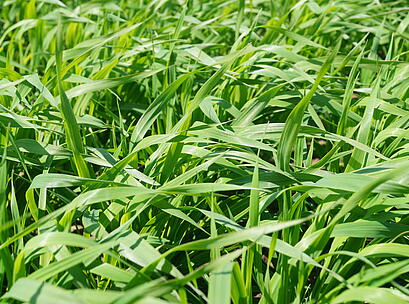
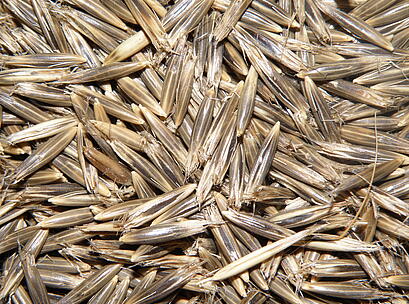
The late Saia oat
Benefits:
- CODEX has a long vegetative growing phase due to a late ear emergence
- Necessity of processing to prevent from seeding is reduced - cost minimization
- Break crop with rapid mass formation in the beginning, despite late ear emergence
- Weeds and volunter cereals are suppressed by the high competitiveness
- Intensive tuft roots and mulch layer after winter form effective erosion protection for the protection of the soil and surface waters
- CODEX as a not winterhard crop is suitable for cover crop blends - as well as for oilseed rape crop rotations
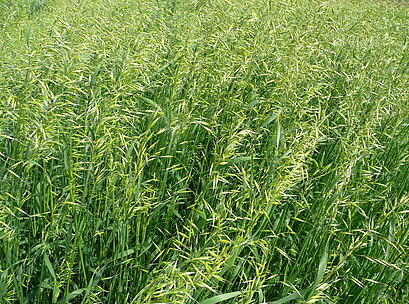
Variety characteristics:
(Officially confirmed or respectively in line with Bundessortenamt)
| Initial mass formation: | 5 |
|
|
|
| Plant height: | 4 |
|
|
|
| Stiffness: | 6 |
|
|
|
| Dry matter yield: | 5 |
|
|
|
| Protein content: | 6 |
|
|
|
Crop rotation suitability:
| Maize | ++ |
| Cereals | + |
| Oilseed rape | ++ |
| Sugar beets | ++ |
| Potatoes | ++ |
| Intensive crops | ++ |
| Legumes | + |
| + suitable / ++ strongly recommended | |
Usage:
- Humus formation
- Protection against erosion
- Ground water protection / Nitrogen conservation
- Green manure
- Biogas- and fodder production
Agronomic features:
| Weed suppression: | 7 |
|
|
|
| Protection against erosion: | 6 |
|
|
|
| Ground water protection / Nitrogen conservation: | 6 |
|
|
|
| Humus formation: | 5 |
|
|
|
| Cold- and frost resistance: | 2 |
|
|
|
| Drought tolerance: | 7 |
|
|
|
| Type of root | Tuft root |
| Rooting depth | 80 cm |
Cultivation recommendations:
| Recommended sowing rate | Erosion protection: 25 - 50 kg/ha, Biomass production: 50-125 kg/ha |
| Sowing depth | 2 - 4 cm |
| Sowing period | July until September - depending on location! |
| Fertilization | 30 - 60 kg N/ha for cover crop, 60 - 120 kg N/ha for biomass production |
| Crop protection | Usually there is no plant protection required |
| Sowing method | Drill seed is recommended |
15.08.2025 12:10:39 // 17.00 - Breeder: P. H. Petersen Saatzucht Lundsgaard GmbH
